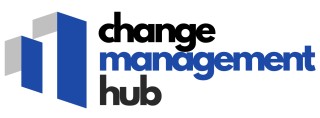Understanding the Role of PMO in Healthcare
The Significance of PMOs in the Healthcare Sector
In the dynamic landscape of healthcare, the Project Management Office (PMO) plays a pivotal role in steering projects toward success. Its existence is not merely about administrative oversight; it's an integral part of healthcare organizations ensuring strategic alignment of projects with business goals. This alignment is crucial for maintaining and improving patient care standards. Healthcare projects often involve complex processes and require a deep understanding of the organization's current state. A mature healthcare PMO will help streamline these processes, providing a structured approach to managing projects efficiently. This structured framework is essential in managing time-sensitive and critical healthcare projects that directly impact patient outcomes. A PMO in healthcare acts as a central hub for standardizing project management. It enables project managers to implement best practices and learn from past experiences. The lessons learned from previous endeavors help in mitigating risks, thus enhancing the probability of project success in future initiatives. Moreover, the PMO's involvement in portfolio management ensures that resources are allocated efficiently across projects. This strategic oversight is vital for balancing multiple priorities, ultimately leading to improved healthcare management and a sustainable organizational growth. For those interested in enhancing workplaces to better support change, consider exploring strategies for change management that foster a gentler environment. Integrating these strategies can further enhance how healthcare management offices function within their respective organizations.Key Challenges in Healthcare Change Management
Identifying Obstacles in Healthcare Project Management
The healthcare industry presents a unique set of challenges when it comes to change management. As project managers work to align the goals of their organization with strategic patient care objectives, understanding these hurdles is critical.- Regulatory Compliance: It's no secret that healthcare projects must adhere to strict regulations and standards. Navigating these regulations requires an adept project management office (PMO) that is well-versed in compliance issues inherent to healthcare management.
- Complex Interdependencies: Healthcare projects are rarely standalone. They often involve a network of interrelated processes and systems, each contributing to the overall success of the project. A PMO must effectively map and manage these dependencies to foster a cohesive team dynamic and avoid disruptions.
- Change Resistance: A common challenge across all sectors, resistance to change is particularly pronounced in healthcare organizations. The comfort associated with existing processes can make healthcare team members wary of alterations, even when they promise significant improvements in patient care and project delivery.
- Resource Allocation: Limited resources are a constant battle. Effective resource management in healthcare projects requires a strategic approach to ensure that vital areas like patient care do not suffer due to resource constraints. Insights into portfolio management within the organization can aid in better resource distribution.
- Technological Integration: With the pace at which healthcare technology evolves, integrating new systems can be complex. Managing projects that entail technological upgrades requires ensuring seamless operations while maintaining focus on delivering care efficiently.
Strategies for Effective Change Management
Implementing Practical Strategies for Efficient Healthcare Project Management
In the dynamic field of healthcare, effective change management is essential. To ensure successful project delivery, healthcare organizations must employ tailored strategies that address their unique challenges.- Define Clear Objectives: Every healthcare project should begin with well-defined objectives. Clear goals guide the project management office in creating actionable plans that focus on project success and align with the organization’s broader mission.
- Engage Stakeholders: Key stakeholders, including health care professionals, patient advocates, and business leaders, play vital roles in shaping project outcomes. Collaboration is crucial, ensuring that everyone is aligned in the pursuit of improved patient care and organizational efficiency.
- Adapt Best Practices: Leveraging proven project management techniques and lessons learned from past projects can guide current initiatives. Incorporating best practices helps project managers navigate the complexities of healthcare change management more effectively.
- Utilize a Flexible Approach: Keeping the approach agile allows organizations to adjust strategies and processes as needed. This flexibility is essential in managing projects that are often influenced by continuously evolving healthcare regulations and technology advancements.
- Monitor Progress and Adapt: Regularly assessing the current state of projects ensures that objectives are being met. Utilizing project portfolio management tools can facilitate the monitoring process, enabling quick adaptations to avoid potential roadblocks.
The Importance of Communication and Training
Emphasizing Transparent Dialogue and Skill Building
In healthcare project management, fostering open communication and prioritizing training play pivotal roles in project success. The dynamic nature of healthcare organizations, coupled with the intricate processes involved in patient care, necessitates a strategic approach to communication and training. Effective communication ensures that all stakeholders, from project managers to patient care teams, are aligned with the project's goals and understand their roles.
Clear communication pathways between the project management office (PMO) and healthcare teams promote transparency and build trust. When project delivery expectations are communicated effectively, it reduces confusion and encourages a smoother project lifecycle. Moreover, communication is integral during portfolio management, allowing for better alignment of projects with organizational objectives and enhancing portfolio success.
Commitment to Continuous Learning
Training is indispensable in managing projects within healthcare organizations. As the healthcare industry evolves, so too must the skills and knowledge of those involved in project management. Continuous training initiatives help teams stay updated with best practices and lessons learned, contributing to the maturity of the PMO healthcare framework and the overall capabilities of the organization.
Structured training programs tailored to healthcare projects can address specific needs, enhancing the expertise of project managers and the teams they lead. By investing time in training, organizations lay the groundwork for sustainable project success and help in adapting to the current state of healthcare management.
Ultimately, a focus on communication and training not only supports project success but also bolsters the resilience of healthcare organizations, preparing them for future challenges and ensuring that both project processes and patient care continue to benefit.
Leveraging Technology in Healthcare PMO
Advancing Through Technology
The transformative potential of technology in healthcare project management cannot be overstated. Incorporating technology into the Project Management Office (PMO) within healthcare organizations offers a wide array of advantages that contribute to improved efficiency and effectiveness. By embracing innovative solutions, healthcare organizations can optimize their PMO maturity and enhance patient care.- Streamlined Processes: Implementing integrated project management software allows PMOs to manage portfolios more effectively by automating administrative tasks, tracking project progress, and keeping team members aligned. This streamlining facilitates a more strategic approach to managing projects.
- Enhanced Collaboration: Online collaboration tools foster better communication within the team and across departments, thus promoting a culture of agility. By ensuring that everyone is on the same page, these tools enable timely patient care delivery.
- Data-Driven Decision Making: Technologies such as data analytics tools empower healthcare project managers to make informed decisions by providing tangible insights into current project states and future trends. This data-driven approach ensures more accurate resource allocation and project success.
- Improved Transparency: Real-time dashboards provide visibility to all stakeholders, including project managers, allowing for greater accountability and transparency throughout the project delivery process.
Measuring Success and Continuous Improvement
Evaluating Outcomes and Encouraging Ongoing Enhancements
In the dynamic realm of healthcare project management, assessing the effectiveness of your initiatives is as vital as designing them. Ensuring project success in this industry revolves around meticulously measuring outcomes and embracing continuous improvement. Here's how healthcare organizations can approach this critical step:- Establish Clear Metrics: At the outset of each healthcare project, define specific, measurable targets aligned with patient care and organizational goals. This includes both quantitative metrics such as time and cost savings and qualitative factors like patient satisfaction.
- Regular Monitoring: Implement a robust process for monitoring performance across healthcare projects. Regular check-ins help keep the project management office (PMO) informed about the current state and allow for timely adjustments to the project delivery strategy.
- Leverage Advanced Analytics: In today's data-driven environment, organizations must leverage analytics to gain actionable insights. Use portfolio management tools to track progress, identify trends, and highlight areas for improvement.
- Encourage Feedback: Develop a culture where feedback from team members and stakeholders is actively sought and valued. Learning from project managers and their experiences can illuminate best practices and lessons learned.
- Promote a Culture of Innovation: Encourage your organization to think creatively about problems and solutions. Empower teams to propose novel approaches and incorporate agile processes that foster strategic change.
- Invest in Capability Building: Continuous improvement requires ongoing training and development. Equip your staff with the skills needed to adapt to advancements in healthcare management and PMO maturity.













